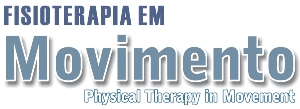INTRODUCTION: Childhood and teenage are periods where prevention and treatment of postural alterations, derived from bad postural habit and mechanical overcharge are more efficient, due to osteomuscular maturation that occurs in these phases. OBJECTIVE: The main goal of this study was to detect possible postural alterations of the vertebral column in deaf school kids from 7 to 21 years old, at Centro de Reabilitação e Educação Especial Rotary Club Caruaru (Rehabilitation and Educational Center Rotary Club), in Pernambuco State, Brazil. METHODOLOGY: Thirty two deaf school kids have participated of an interview about data, referring to the period of installation and kind of deafness, biological, anthropometric and postural habits data, having been submitted to a postural evaluation according to literature proposed criteria. Data were analyzed in a descriptive way and association among variable points used the Chi-Square test or their variant items through SPSS TM program version 11.5. RESULTS: Studies have showed that prevalence of postural alterations on deaf school kids reached 90.62% of all cases. The most frequently observed postural alteration was thoracic hyperciphosis, which was associated to pain in school kids. By considering the distribution in relation to sex, postural alteration of the type scoliosis was associated to female sex. CONCLUSION: High prevalence of postural alterations on deaf school kids in our study suggests that deafness may represent an important factor in development of postural alterations. However, there is necessity of new studies to investigate a possible relation between deafness and biological and environmental factors in larger school kids' population.
Assessment; Posture; Hearing loss; Scoliosis



